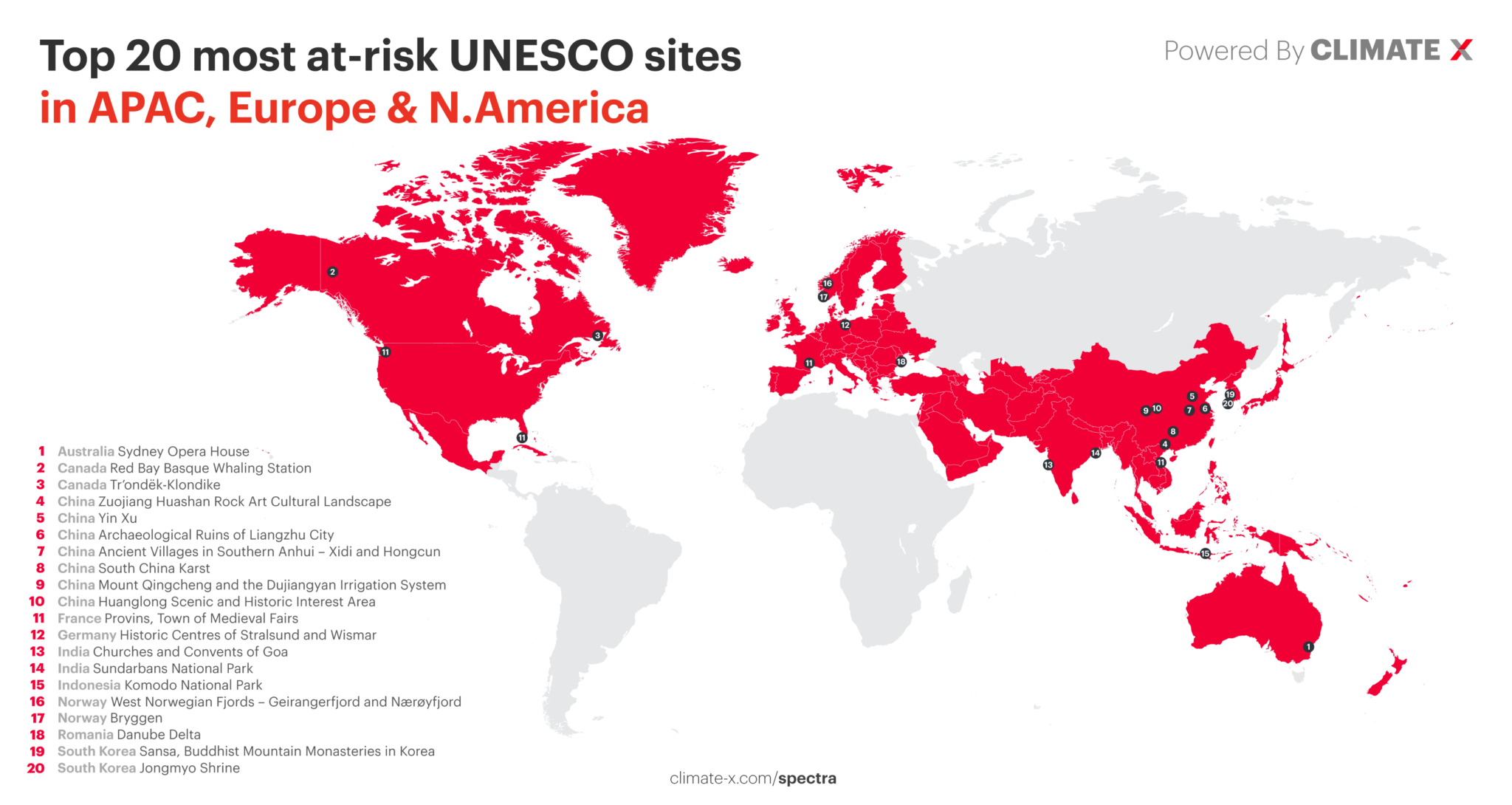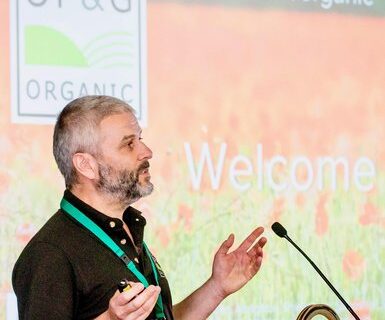New data from climate risk data analytics company Climate X has identified the top 50 UNESCO Heritage Sites that are most vulnerable to climate-related damage. The analysis highlights that four of the UK’s 35 UNESCO Heritage Sites – The Forth Bridge, St Kilda, and New Lanark in Scotland, as well as Studley Royal Park in Yorkshire – are among the most at-risk sites in the world.
The 500 UNESCO Heritage Sites around the world were assessed against the physical hazards each site faces if society does not make concerted efforts to cut greenhouse gas emissions. These risks included flooding, coastal erosion, landslides, wind-based hazards, storms and cyclones.
Victorian engineering marvel the Forth Bridge and remote archipelago St Kilda were cited as most vulnerable to coastal flooding risks, while 18th century mill village New Lanark was included in the list for its risk of damage from landslides. In England, Yorkshire’s Studley Royal Park, best known for its landscaped water gardens and 12th-century abbey ruins, is said to be most vulnerable to severe storms.
Other UNESCO sites from around the world at highest risk of climate-related risks include Australia’s Sydney Opera House, the USA’s Olympic National Park, Switzerland’s Swiss Alps Jungfrau-Aletsch and Korea’s Sansa Buddhist Mountain Monasteries.
The analysis was done using Climate X’s Spectra platform, which models how climate change will affect properties, assets and infrastructure under various scenarios. The platform’s sophisticated algorithms quantify the risk from extreme weather, providing a Google Maps-like interface and allowing users to model the future likelihood of 16 different climate hazards — from extreme heat to tropical cyclones and flooding — across eight warming scenarios over a 100-year time horizon.
Lukky Ahmed, CEO and co-founder of Climate X said: “The potential impact of climate change on these sites is profound. But it’s not just our past heritage that’s at risk – it’s our present, too. While the loss of these cultural treasures – many of which have endured for millennia – would of course be devastating, it’s also vital to remember the real societal and economic impact of climate change is happening in the here and now.”





